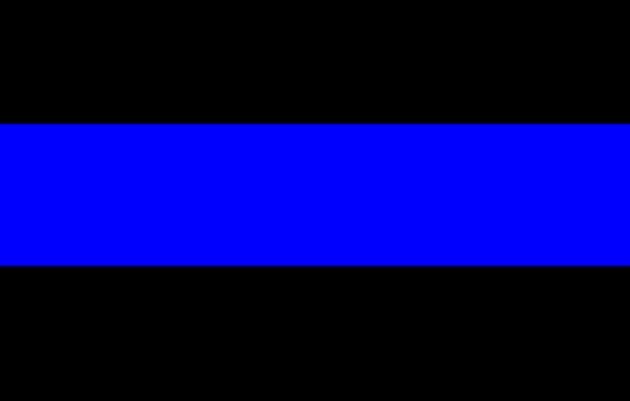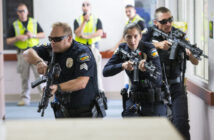There truly seems to be a war on cops that has started. I don’t think that fact needs to be argued. As I sit back and watch the latest tragic media stories, all of the expected feelings of anger, frustration and sadness are there.
However, the thought I am struggling the most with is why? What’s changed? What’s different now? Are we to blame? Is this law enforcement’s fault? Simply, where did we go wrong?
We are supposed to be the heroes, the protectors, the guardians of everyone’s rights. I won’t answer all these questions; frankly, I don’t think I can. I can only express how it looks from my perspective and offer some ideas.
Anytime we as humans have a personal crisis it usually sparks a period of reflection and has us asking questions such as why did this happen to me, how can I either fix it or prevent it from happening again?
Trauma and crisis often spark significant personal and psychological growth in us. I do think this already has started for the law enforcement community, and if it hasn’t, we should take this time to better understand where we went wrong and grow from it.
As a country, we also need to use these events to ask ourselves as a whole, where did our national perspective on law enforcement and a free society go wrong — or has it? These answers won’t come easy and they won’t be answered in this article. I just want the conversation to start.
For a long time, law enforcement has had a PR problem. We don’t talk enough about the good things we do, the lives we save or the problems we resolve. Bad news sells, and we have not done much to combat that. This is definitely our fault. That is why I am so proud of the work Behind the Badge OC does. However, this is only a very small piece of the pie.
Officer-involved shootings have been occurring for decades in modern law enforcement. Has anything really changed in these incidents?
The laws in most states support the fact that officers have a right to defend themselves and a duty to defend the public. We are also a society that likes guns; therefore, cops have had to match what they might be confronted with to honor that duty of protecting.
This is not the problem, in my opinion. The problem is law enforcement has failed to recognize a changing society and has failed to adapt quickly enough, and that has had deadly consequences.
Let me give you an example from the corporate world. How many of us grew up using a Thomas Brothers map? If you are over 35, probably all of us used one at some point. They completely owned the map market. I clearly remember being with my dad when it was time to buy the new version every year.
What happened to Thomas Brothers? They failed to recognize the changing technology world around them and failed to adapt, and therefore have ceased to exist as a viable organization.
The same goes for Blackberry, Palm, and even older examples like Amtrak and some would say print media. In each case, they simply failed to recognize the changing world around them and evolve to stay relevant in an ultra fast-paced society.
Law enforcement is traditionally slow to change, slow to recognize change is needed and is often afraid of that change. It was designed that way, and it has worked fairly well for many years. Police departments have been blindsided by technology, YouTube, video recorders in every pocket, social media, viral videos, and fast-paced information that leads to conclusions being drawn in a matter of seconds after a video is uploaded.
On top of that, we failed to recognize the increased burden on the police. With crumbling budgets for social services, mental health programs, addiction treatment and effective behavior rehabilitation services, the burden for these social problems haven fallen on the police. And when things went wrong, everyone blamed us. We are the only visible presence left in the community that is an example of these shrinking services. People are frustrated and looking for someone to blame, and the police have become the scapegoat.
Law enforcement as a whole was slow to recognize all of this and adapt with more transparent practices, innovative policing models, better technology, better equipment, more effective training, higher hiring standards, and at the same time has been slow to hold our government partners accountable for their end of the bargain by either forming new programs or giving the police the needed financial resources to handle these challenges.
All of this has allowed an anti-law enforcement perspective to take hold. It is time for police departments to realize that traditional models of policing and practices are not going to work for the future. We can no longer say, we can’t tell you what happened because of the ongoing investigation. We need to be one step ahead of the edited viral videos.
We can no longer expect one type of officer to handle all of these problems. The jack-of-all-trades, master of none model will no longer work. We need specialized teams to handle all the functions that are expected of the police so we can do it better and more effectively.
Law enforcement and our country have some tough questions to answer in the next few months and years. I hope collectively the law enforcement community realizes that change and growth is needed before others dictate that change for us.
Kevin Von Luft is an 18-year law enforcement veteran for an agency in Orange County, CA. He holds a master’s degree in clinical psychology and is a part-time columnist for Behind the Badge.
 Behind the Badge
Behind the Badge



